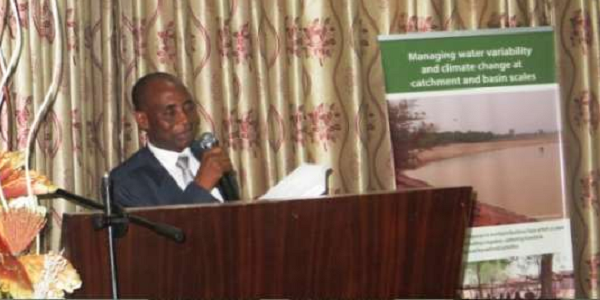
Government to restructure GIDA
The government is taking steps to restructure the Ghana Irrigation Development Authority (GIDA) into a more viable and efficient entity, the Deputy Minister of Food and Agriculture, Dr Sugri Banbangi, has said.
This exercise will help move the authority from direct implementation and management activities of public irrigation schemes into a sub-sector planner, regulator, advisor, supervisor, facilitator and public service provider.
At a forum on “Agricultural Water Management for Attainment of Sustainable Development Goals (SDGs) in Ghana” in Accra, Dr Banbangi said the strategy of the government was to complement the restructuring of the irrigation sub-sector with its flagship programme “One-Village, One-Dam”.
“Boosting production in the agricultural sector which directly and indirectly employs about 60 per cent of Ghanaians to the various linkages is crucial in achieving the first three sustainable development goals, which include no poverty, zero hunger, good health and well-being.”
According to him, dependable water provision through irrigation, use of improved seeds and adoption of best agronomist practices are the surest ways of modernising agriculture in the country.
Modernising irrigation
Dr Banbangi said it was for that reason that the government has embarked on a programme to restructure and modernise the irrigation sub-sector in the country.
He said the government would also promulgate the legislative instrument 2230 of 2016 to promote the establishment of vibrant water users association on public and community-managed irrigation schemes and dams nationwide.
He explained that the water users association would be given a greater role in the management of the small irrigation schemes while the large public irrigation schemes would be managed by private entities under public private partnership (PPP) arrangements.
“This arrangement is expected to improve efficiency and productivity of the irrigation schemes. It will also help transform the GIDA and improve investment climate under PPP arrangement,” he added.
Book launch
The forum preceded the launch of a book titled: “The Volta River Basin (VRB): Water for Food, Economic Growth and Environment.” The book examined from a multidisciplinary and multi-stakeholder perspective, the solutions and strategies to improve the use of water and other natural resources in the VRB to achieve enhanced food security, livelihood and economic growth.
The VRB is an important transboundary basin in West Africa, which covers approximately 410,000 square kilometres across six countries: Ghana, Togo, Benin, Burkina Faso, the Core d’Ivoire and Mali.
Its natural resources sustain the livelihoods of its population and contribute to socio-economic development.
The 281-page book was authored by 39 writers and provides a comprehensive, interdisciplinary review and assessment of the issues and challenges faced.
The authors provide a science-based assessment of current and future scenarios of water availability, the demands of key sectors, including agriculture and hydropower, and the environment under changing demographic, economic, social and climatic conditions.
They also identified solutions and strategies that would allow available water resources to be sustainably used to improve agricultural productivity, food security and economic growth in the VRB.
Touching on the book, Dr Banbangi said the book had come at an opportune time to help support the government’s efforts to make water available for productive use by Ghanaians.
That, he said, would help the country meet the water-related SDGs of the development community.